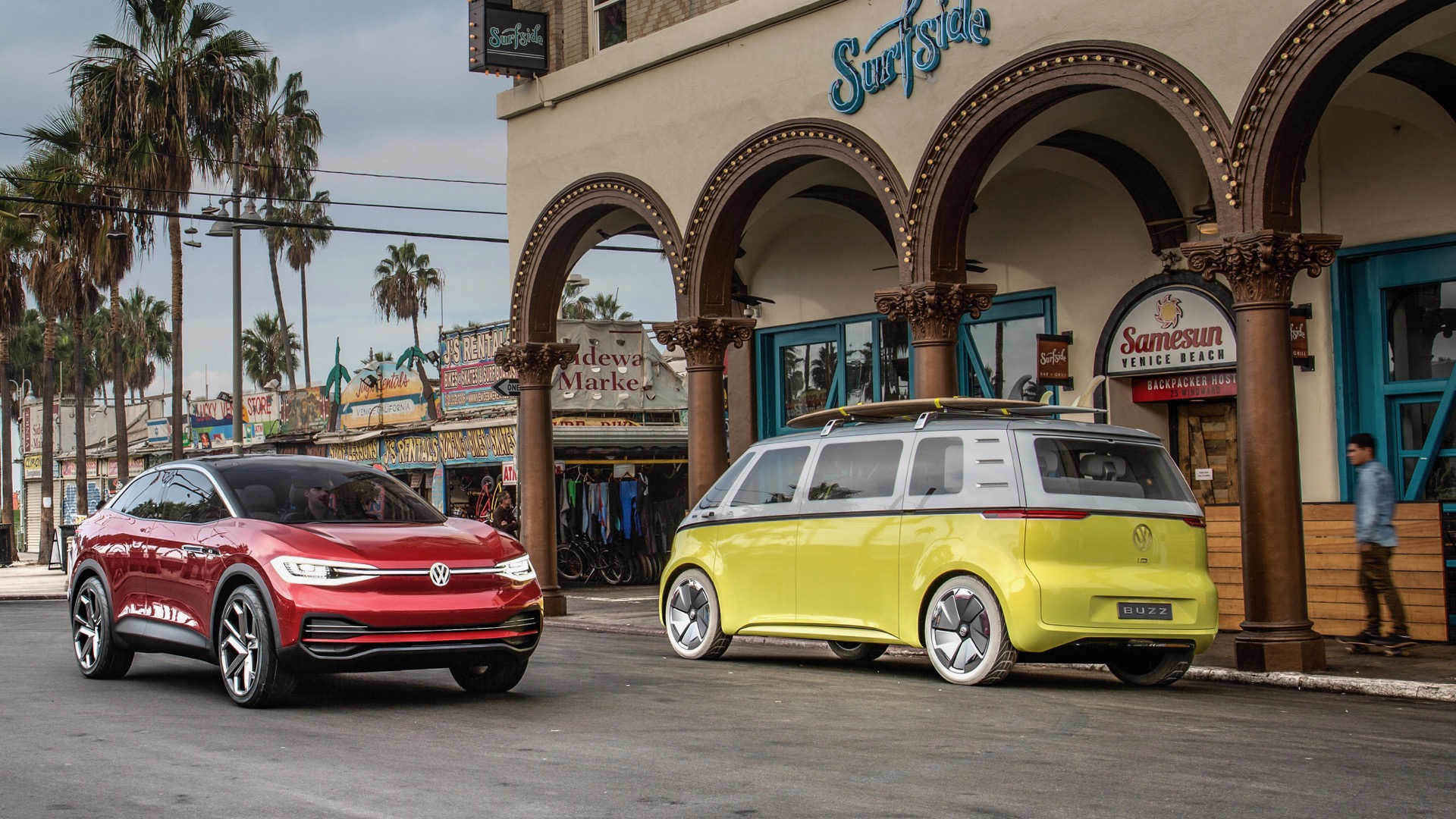

The Volkswagen Group is accelerating its plans for electric cars. In conjunction with its annual financial results press conference, VW said it plans to sell 22 million electric cars in 10 years, up from a previous goal of 15 million vehicles. The automaker said it will launch 70 new electric models across multiple brands by 2028, instead of the 50 previously stated.
“Volkswagen is taking on responsibility with regard to the key trends of the future–particularly in connection with climate protection,” CEO Herbert Diess said in a statement. “The targets of the Paris Agreement are our yardstick.”
VW controls a large number of brands—encompassing everything from Skoda to Lamborghini—and most of them are expected to get all-electric models in the coming years. The Audi E-Tron and Porsche Taycan launch later this year, and each brand is planning at least one additional electric model. The Volkswagen brand will get a family of electric cars based on the recent I.D. concepts and using VW’s new MEB modular platform. Seat and Skoda electric cars will also be part of the “first wave” of launches, VW said.
Volkswagen expects electric cars to make up 40 percent of its total fleet by 2030. It will invest more than 30 billion euros ($33 billion) through 2023 in electrification. The company has recruited LG Chem, SKI, CATL, and Samsung as battery suppliers, and said it may also manufacture its own batteries in Europe to meet demand. VW is also part of the Ionity project, which seeks to install 400 fast-charging stations along Europe’s major roads by 2020.
But turning a company that, only a few years ago, was mired in a diesel-emissions scandal into a paragon of electrification won’t be easy. During VW’s results press conference, Diess told Reuters that the company will have to make job cuts. Building an electric car requires “some 30 percent less effort” than building an internal-combustion one, Diess said, so fewer employees will be needed.
Cutting jobs may also save money as Volkswagen invests heavily in the transition to electric cars. General Motors has cited the need to invest in electric powertrains and other emerging technologies as a reason behind a series of job cuts and plant closures.